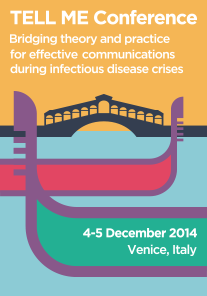3. Freedom from Torture and Inhuman or Degrading Treatment
Though not common or universally accepted, public health strategies, including those designed to deal with epidemic events, might recommend in extreme cases the possibility of compulsory medical procedures such as compulsory testing or vaccination. Such measures have been used in the past, but in recent times have been frowned upon and would seemingly violate the doctrine of informed consent that is now seen as having a primary role in governing patient –doctor relationships. Despite this trend, the possibility for compulsory examination and treatment including vaccination was foreseen in the latest version of the International Health Regulations issued by the WHO.
One might however ask whether there is support for the notion that compulsory treatment (i.e. without the patient’s consent) is unacceptable under any circumstances. One possible assumption that has been put forward is that any treatment without a patient’s consent would be contrary to article 3 of the ECHR which prevents states from engaging in ‘inhuman or degrading treatment or punishment’. Unlike other some of other Articles of the ECHR (e.g. articles 2, 5 and 8), there are no qualifications available under article 3. This means that inhuman and degrading treatment is effectively forbidden outright under the ECHR. Whilst as of yet, there are no cases that have been brought to Strasbourg regarding the compatibility of Article 3 and the use of certain compulsory practices during outbreaks of infectious diseases, there have been useful analogous cases that might provide a useful indication as to whether such measures are indeed legal. In attempting to ascertain what the court might conclude if such a case arose one must look at analogous cases in order to form an opinion.
In Herczegfalvy, the court held that, as a general rule, a measure that is a ‘therapeutic necessity’, can not be regarded as inhuman or degrading. That case however concerned an individual that suffered from mental illness and so did not possess full capacity to give informed consent. One might therefore ask what would be the outcome where the proposed compulsory procedure were to be performed upon individuals that did possess the capacity to consent and did not provide such consent?
In the Nevmerzhitsky case, the court considered the case of a Ukrainian prisoner that had engaged in a hunger strike in protest at his conditions of detention. In response to his situation the Ukrainian authorities took the decision to force feed him. The applicant in the case claimed inter alia that this amounted to a violation of article 3 of the ECHR. In what could be read of an endorsement of such paternalistic practices the court concluded that the applicant’s rights had indeed been violated but merely for procedural reasons and not that force feeding per se was contrary to article 3. In its reasoning the court highlighted the finding in Herczegfalvy that treatment that is carried out as a therapeutic necessity can not be considered a violation of article 3. In this case though the court concluded that the Ukranian authorities had not provided sufficient proof to show that they had demonstrated that the force-feeding was in this case indeed a therapeutic necessity. Nevmerzhitsky appears to render invalid the assumption that the ‘therapeutic necessity’ reasoning would only apply to cases where individuals do not have the capacity to give consent. Case law at the Strasbourg level would seem therefore to currently still permit forced or compulsory treatment if it can be demonstrated that such treatment is a ‘therapeutic necessity’. In Europe forced treatment measures may therefore be permissible for states during epidemic situations. It is important to recognise however that the situation in each country may vary though, with some states not allowing compulsory medical treatment or only allowing such treatment under specific circumstances. In the UK for example courts have considered the permissibility of forced medical treatment in the prominent case of Burke. In this case the court stated that medical treatment given without the consent of a patient violates Article 3 and 8 of the ECHR (the prohibition of inhuman and degrading treatment and the respect for private and family life respectively). It should be pointed out that this interpretation of the ECHR is only binding in the UK, and only until a higher UK court or the European Court of Human Rights rules otherwise.
Limitations of Nevmerzhitsky- Unlikely to Permit Compulsory Vaccination
It important to note that even if the ruling in Nevmerzhitsky is not moderated by future judgments of the EtCHR there is doubt that it would allow all procedures deemed as being beneficial in the case of a an epidemic. This is because Nevmerzhitsky and Herczegfalvy before it, stated that treatment could not be deemed inhuman or degrading if it was a therapeutic necessity. The concept of a therapeutic necessity appears to refer to the patient upon which the medical procedure in question is to be carried out upon. This would not seem to include procedures that are not likely to be beneficial to the individual in question but which may be of a benefit to the wider society. This may particularly apply to the issue of vaccination where it may be impossible to demonstrate that it is a therapeutic necessity to vaccinate a single patient.


